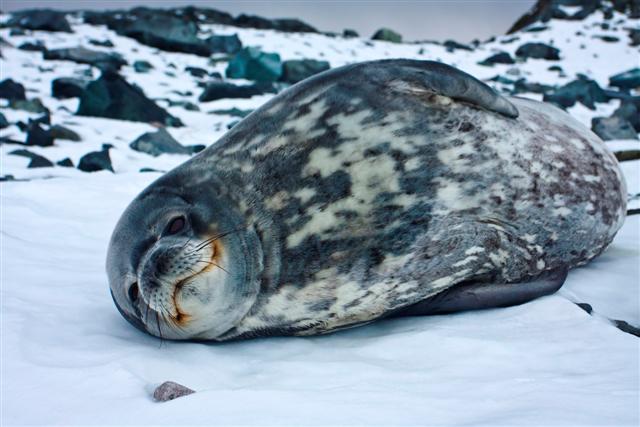On 22 May 2014, the highest judicial tribunal of the World Trade Organization, WTO, the Appellate Body, released its final ruling on the longstanding "seal case". While having found that the EU ban" constitutes a means of arbitrary or unjustifiable discrimination", violating therefore WTO rules, the Appellate Body upheld the Panel's finding that the EUSeal Regime is “necessary to protect public morals”.

Back in 2009, following years of lively debates with Canada, the EU eventually adopted the controversial Regulation EC 1007/2009, which banned the import into the Union of all produced derived from seals, nevertheless allowing "the placing on the market of seal products [...] where the seal products result from hunts traditionally conducted by Inuit and other indigenous communities and contribute to their subsistence."
Canada, later enjoyed by Norway, challenged the ban in front of the WTO. In November 2013, the panel released a report stating that although the EU ban was undermining "fair trade", the restrictions could be justified on "public moral concerns" for animal welfare.
Both Canada and Norway, and both the EU appealed to the Appellate Body "certain issues of law and legal interpretations developed by the panel "(January 2014).
The final decision, relased on 22 May, of the Appellate Body has triggered various reactions.
The Harper government (Canada) released a joint statement (the Honourable Ed Fast, Minister of International Trade, the Honourable Gail Shea, Minister of Fisheries and Oceans, and the Honourable Leona Aglukkaq, Minister of the Environment, Minister of the Canadian Northern Economic Development Agency and Minister for the Arctic Council) to respond the WTO decision: "Canada’s position has been that the eastern and northern seal harvests are humane, sustainable and well-regulated activities that provide an important source of food and income for coastal and Inuit communities. "The ban on seal products adopted in the European Union was a political decision that has no basis in fact or science." "We expect that the European Union will comply with the letter and spirit of the decision, and we will be closely following how it brings itself into compliance. Our government will continue to stand up for trade fairness for this important, traditional way of life.” (read the Joint statement here).
Canadian Inuit organizations are outraged. Although the ban actually contains an "Inuit exemption", which technically allows products derived from Inuit traditional hunting to be sold into the EU; different, organizations have highlighted the impossibility to sell products in a collapsed market:
“I am morally outraged at the self-righteousness and sanctimoniousness of the EU’s claim to protect the morals of its citizens,” said Terry Audla, president of Inuit Tapiriit Kanatami (ITK), in a statement from the national Inuit organization. “Inuit live according to the principles of fairness and compassion, and we seek nothing more than to feed our families and make an honest living in the modern economy. It is morally reprehensible for anyone to impede those goals—which are the basic rights of any citizen of the world.”
On the contrary, animal lobbies, as IFAW, applaud the WTO ruling for reiterating the importance of public morality in international trade, congratulate the EU "for taking this principled stand against the inhumane slaughter of seals" , and consider "the ban backed by the most rigorous scientific and socio-economic examination of commercial seal hunts around the world ever conducted (IFAW EU Regional Director Sonja Van Tichelen).
However, the Seals & Sealing Network tried to moderate the discussions warning: "Despite widespread media reports that the World Trade Organization (WTO) Appellate Body upheld the European Union (EU) ban on seal products yesterday, the ban has not in fact been upheld. Indeed, the WTO determined that the EU's ban is designed and applied in a manner that constitutes a "means of arbitrary and unjustifiable discrimination." The WTO has further told the EU that its ban must change - it cannot allow imports of Inuit seal products and hunting for resource management to remain valid while banning all other seal products. What the WTO has upheld is that it is possible for a nation to address animal welfare concerns by invoking public morals as a justification." and "The EU must now decide whether to ban all seal products, including those harvested by Inuit who have subsisted on seal hunting for thousands of years, and those harvested to prevent the overabundant population from getting out of control, or to revoke their political and discriminatory ban. The EU, in any event, must bring the ban into compliance with the WTO decision."(read the full answer here).
Source: WTO, CBC Canada, EUObserver
